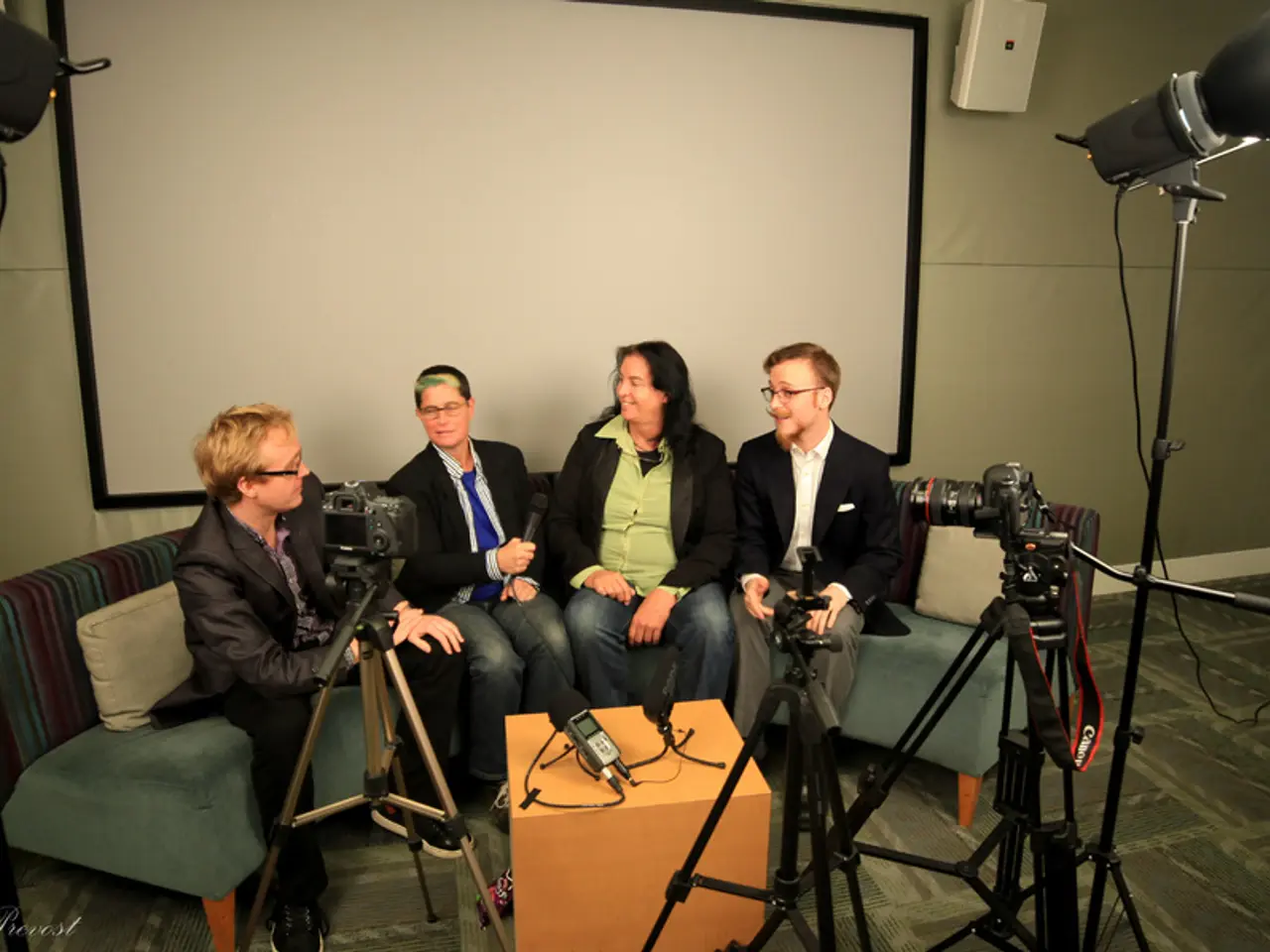Guidebook on Steadfast Mindset: Proven Methods for Unwavering Excellence, authored by Nate Zinsser
In the realm of personal development, confidence stands as a beacon of strength and resilience. According to Dr. Nate Zinsser, the director of the Performance Psychology Program at the West Point Military Academy, confidence is not an innate trait, but a skill that can be developed and maintained.
Zinsser's book, "The Confident Mind," offers key techniques for building mental toughness and self-belief. He emphasizes that confidence has little to do with what happens and much to do with how one thinks about what happens. By focusing attention on actionable steps and present emotions, individuals can avoid dwelling on past mistakes or future fears, and train their minds to stay centered on "what to do" and "how to feel" in the present.
One of the strategies Zinsser advocates is mental rehearsal, such as visualization, affirmations to reinforce positive self-beliefs, and preparing a solid game plan to face challenges with resilience and focus. These strategies collectively support building lasting confidence by empowering individuals to manage their mental state, respond effectively under pressure, and persevere through adversity.
Another technique Zinsser teaches is a simple three-step pre-performance routine called C-B-A: cue your conviction, breathe your body, attach your attention. After attaching your attention to a target inside your performance, let your subconscious drive your performance and accept all results.
Zinsser's methods have proven effective in various fields. He helped quarterback Eli Manning achieve his "First Victory" before Super Bowl 42 by getting him to believe he was as good as any player in his position. Similarly, Army Officers who trained under Zinsser achieved their "First Victory" before going into combat when they believed they could handle anything the enemy threw at them.
However, it's crucial to remember that building confidence is not about striving for perfection, but about thriving for improvement. Dwelling on mistakes and berating oneself for poor results depletes one's mental bank account and erases the confidence built up with quality effort, success, and progress reflection. Instead, after a poor performance, one should focus on the things done well and the lessons learned.
Being curious about imperfections can provide valuable sources of information. Thrive for perfection but quickly accept imperfections because you're an imperfect human, and beating yourself up is counterproductive. Instead, attach your attention to something inside your performance to be deeply curious about, and use that curiosity to fuel your growth and development.
In essence, confidence is a sense of certainty about one's ability that allows for unconscious execution. Your mind maintains a "bank account" of memories for the sport, craft, or profession you want to excel in. To build up your mental bank account, reflect on the time you spent in the field you want to excel in and ask: "Where did I put forth quality effort today?", "What success did I have due to my effort?", "What progress did I make as a result of my effort?"
Dr. Zinsser's work as a renowned performance psychology expert has extended beyond the military and sports, reaching executives and athletes alike. His teachings offer a practical and effective approach to building confidence, empowering individuals to face challenges with resilience, focus, and a 'Let's see how great I can do this' attitude.
- Dr. Zinsser's teachings, with focus on mental rehearsal and a three-step pre-performance routine, offer a practical approach for entrepreneurs to build lasting confidence, leading to effective response under business pressure and perseverance through adversity.
- The focus on personal development through confidence building is crucial for finance professionals, as it can influence their ability to make sound decisions, thereby impacting the success of their businesses.
- As Zinsser's methods have proven effective in various fields, incorporating his teachings on building mental toughness and self-belief into leadership programs may lead to improved personal development and overall success within the business world.




